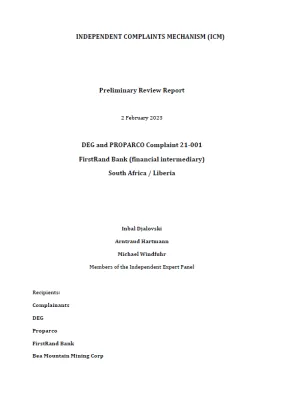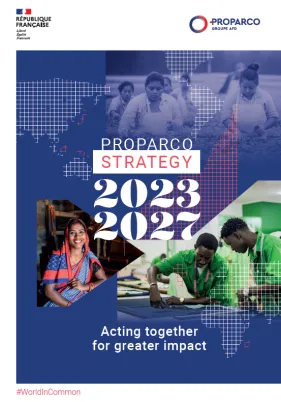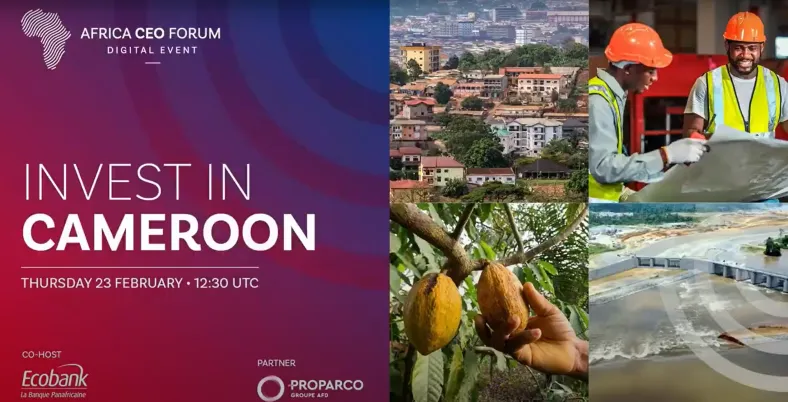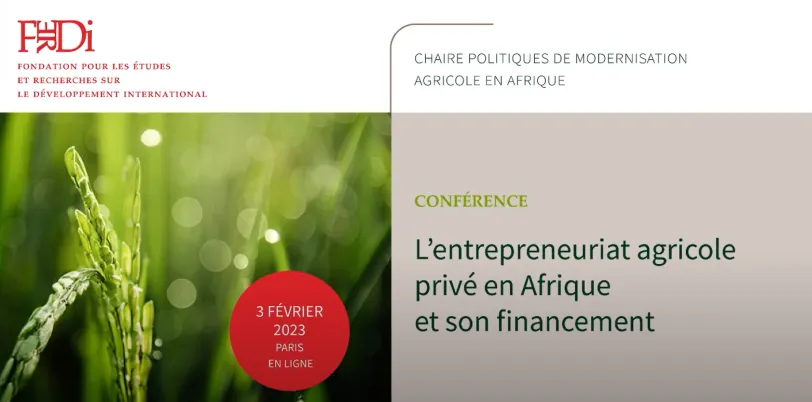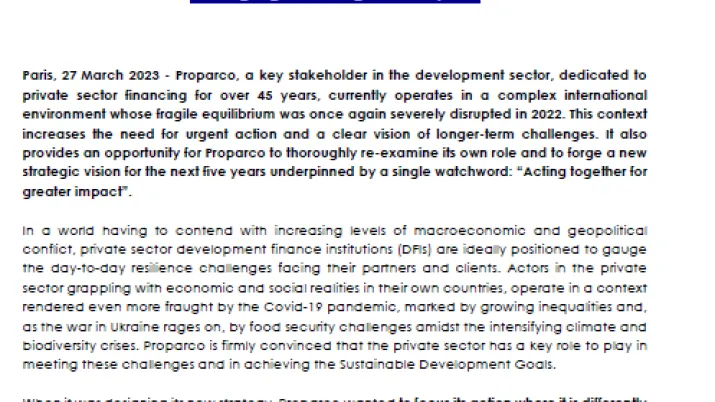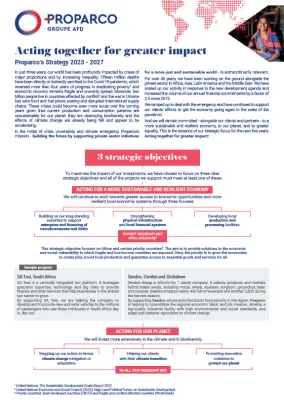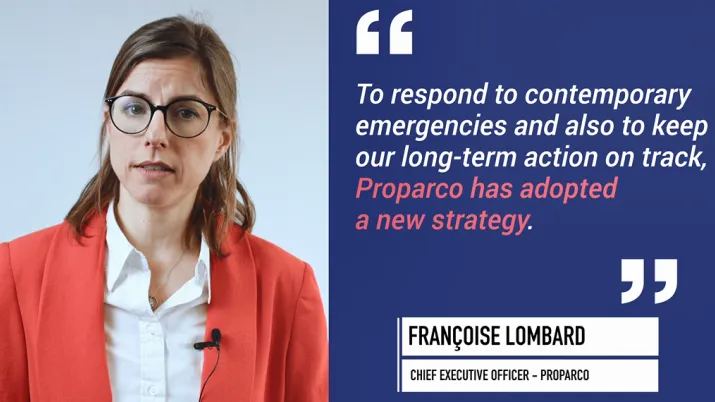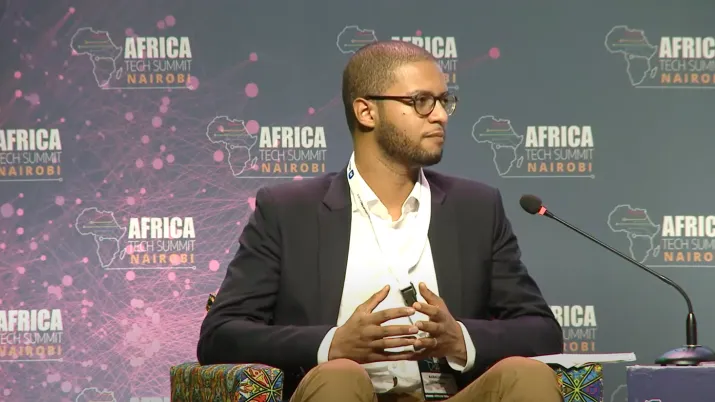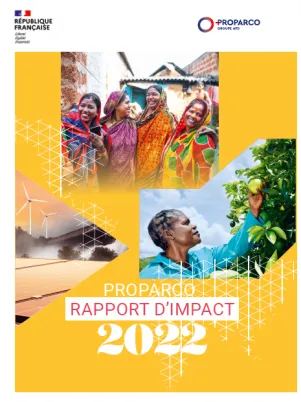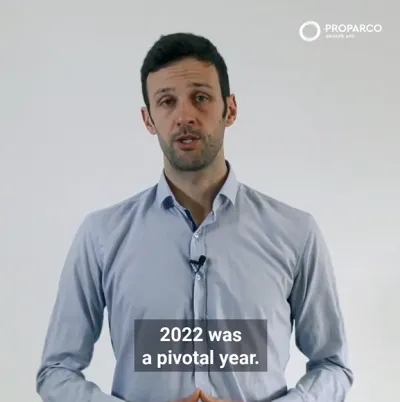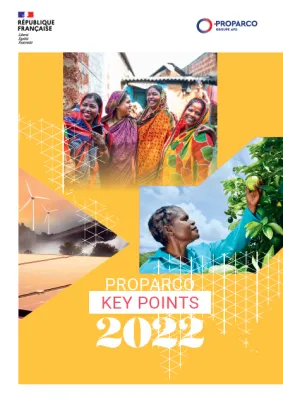Search results
Experts Insights - Support the scaling of climate financing in South Africa
In South Africa, Proparco, on behalf of AFD Group, has provided a $100 million climate finance-dedicated credit facility to FirstRand Bank Limited (FRB). Details with Tessa Macnab, Investment Officer...
Publication
Published on
ICM complaint #21-001 - Preliminary Review Report
On 25 February 2021, the Complaints Offices of FMO, DEG and Proparco (collectively, “the DFIs”) received a complaint containing allegations of harm caused by the New Liberty Gold Mine (“Complaint”), a...
Publication
Published on
Replay - Intervention of Proparco during the Africa Tech Summit London
Watch the intervention of Babacar Seck, Senior Investment Officer (Proparco), during the Africa Tech Summit London in November 2022.
Publication
Published on
Replay - Intervention of Proparco during Abertura de Safra de Cana, Açúcar e Etanol 2022/23
Watch the intervention of Guilherme Meira, Senior Investment Officer (Proparco), during Abertura de Safra de Cana, Açúcar e Etanol 2022/23 in March 2022.
Publication
Published on
Replay - Intervention of Proparco during the Global Agribusiness Forum 2022
Watch the intervention of Guilherme Meira, Senior Investment Officer (Proparco), during the Global Agribusiness Forum in July 2022.
Publication
Published on
Experts Insights - Trade Finance Guarantee Programme
Many companies in emerging markets lack access to financing for their import operations. While they are a key driver of trade, employment and economic development, it is the small and medium-sized ent...
Publication
Published on
Proparco's Strategy 2023-2027 - Brochure
In response to the numerous challenges currently confronting the planet – economic and geopolitical crises, climate emergency, growing inequalities – Proparco is adopting Strategy 2023-2027. This five...
Publication
Published on
REPLAY - Intervention of Proparco during Invest In Cameroun 2023
Watch the intervention of Mehdi Tanani, Regional Head Central Africa (Proparco), during the event Invest In Cameroun on February 2023.
Publication
Published on
REPLAY - Intervention of Proparco during the Ferdi conference: L'entrepreneuriat agricole privé en Afrique
Watch the intervention of Fadila Hamdane, Head of Manufacturing, Agribusiness et Services Division (Proparco), during the Ferdi conference: "L'entrepreneuriat agricole privé en Afrique et son financem...
Publication
Published on
Annual Report Independent Complaints Mechanism - DEG/FMO/Proparco - January/December 2022
As part of their commitment to act responsibly and transparently, in 2014, DEG and FMO established the Independent Complaints Mechanism (ICM) to ensure that individuals, groups, communities or other p...
Publication
Published on
Press release - Proparco launches its new 2023-2027 strategy: “Acting together for greater impact”
Proparco, a key stakeholder in the development sector, dedicated to private sector financing for over 45 years, currently operates in a complex international environment whose fragile equilibrium was...
Publication
Published on
Accelerating the growth of small and medium-sized businesses
Proparco brings together a wide range of financing and business advisory solutions tailored to meet the needs of these small and medium-sized enterprises and start-ups at the different stages of their...
Editorial page
Proparco's Strategy 2023-2027 - Narrative
In response to the numerous challenges currently confronting the planet – economic and geopolitical crises, climate emergency, growing inequalities – Proparco is adopting Strategy 2023-2027.
Publication
Published on
Proparco's Strategy 2023-2027 - Interview of Françoise Lombard, Chief Executive Officer
“The climate emergency and growing inequalities are even more acute at present. The role of the private sector is more important than ever. It is actually an essential lever for achieving the Sustaina...
Publication
Published on
Replay - Intervention of Proparco during the Africa Tech Summit 2023
Watch the intervention of Babacar Seck, Senior Investment Officer, Private Equity & Venture Capital (Proparco), during the Africa Tech Summit Nairobi of February 2023.
Publication
Published on
Impact Report 2022
Proparco is committed to building a better future by supporting private sector initiatives for a more just and sustainable world. As a development finance institution, Proparco evaluates and reports o...
Publication
Published on
Proparco Key Figures 2022
2022, when Françoise Lombard was appointed Chief Executive Officer, closed the strategic cycle for 2020-2022 and witnessed the adoption of Proparco’s new Strategy 2023-2027. This strategy - “Acting to...
Publication
Published on
Experts insight - “2022 was a pivotal year. It witnessed major progress in terms of impact”, A. Uzabiaga
On the occasion of the publication of Proparco's Impact Report 2022, Arnaud Uzabiaga, Head of the Impact Measurement Unit, explains in what way 2022 was a momentous year and presents the new prioritie...
Publication
Published on
Impact Report 2022 - Key Points
For the fourth year in a row, Proparco’s commitments topped the two billion euro mark, with a total of 214 projects. 59 new projects totalling €1.46 billion have been analysed and subject to an ex ant...
Publication
Published on
REPLAY - Intervention of Proparco during the Africa CEO Forum 2023
Watch the intervention of Françoise Lombard, CEO of Proparco, during the Africa CEO Forum of June 5th and 6th 2023 in Abidjan (Ivory Coast).
Publication
Published on


